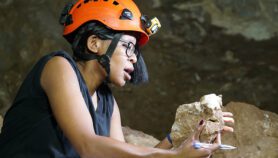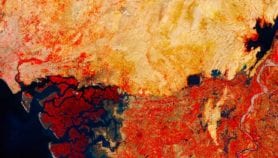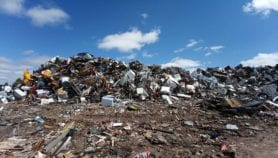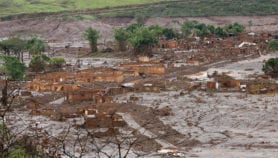By: Zoraida Portillo
Send to a friend
The details you provide on this page will not be used to send unsolicited email, and will not be sold to a 3rd party. See privacy policy.
[LIMA] Geoengineering experts, who gathered this week to assess proposals for manipulating the earth to avoid climate disaster, have stressed that they are not planning to make recommendations about actions the world should take — but are merely assessing whether the proposals are sound science.
Spraying the atmosphere with aerosols; changing the colour of clouds; and ‘fertilising’ oceans with iron to increase their absorption of carbon dioxide; were some of the technological options evaluated by the international expert group at the first global meeting on geoengineering this week (20–22 June) in Peru.
The outcomes from the meeting — closed to the public and convened by the UN Intergovernmental Panel on Climate Change (IPCC) — will contribute to the IPCC’s fifth assessment report, due for publication next year.
Environmental and human rights organisations from 40 countries sent an open letter to IPCC chairman Rajendra Pachauri, protesting against the use of geoengineering to change the climate. The letter deemed the practice "alarming" and warned that the IPCC "must take great care not to squander its credibility on … a topic that is gathering steam precisely when there is no real progress on mitigation and adaptation".
Silvia Ribeiro, Latin America director of the nongovernmental organisation ETC Group, said: "As a political matter, it is dangerous because it will allow industrialised countries to evade their commitments to reduce carbon emissions — offering instead the prospect of a quick solution to global warming".
But, in a press conference at the Peruvian Foreign Ministry, the IPCC expert group said that it is merely comprehensively evaluating the technologies.
"The IPCC does not give recommendations," said Ramón Pichs-Madruga, co-chair of the working group, adding that the group welcomes all opinions.
Christopher Field, director of the Department of Global Ecology at the Carnegie Institution for Science, United States, said that the group has taken into account all of the possible impacts of geoengineering technologies.
The group analysed a range of techniques, from simple ones such as planting trees to more complicated options such as solar radiation management. An example of the latter is the injection of aerosols into the atmosphere.
"We realised that there is no single option, nor is there a magic recipe, and all actions must be assessed to make better decisions," said Ottmar Edenhofer, co-chair of an IPCC working group.
The IPCC’s reputation has suffered over the last two years with the revelation of errors in its reports, which has fuelled the campaigns of climate sceptics, and the recommendation from an independent investigation that it should take more care to explain that some scientific claims are more speculative than others.













